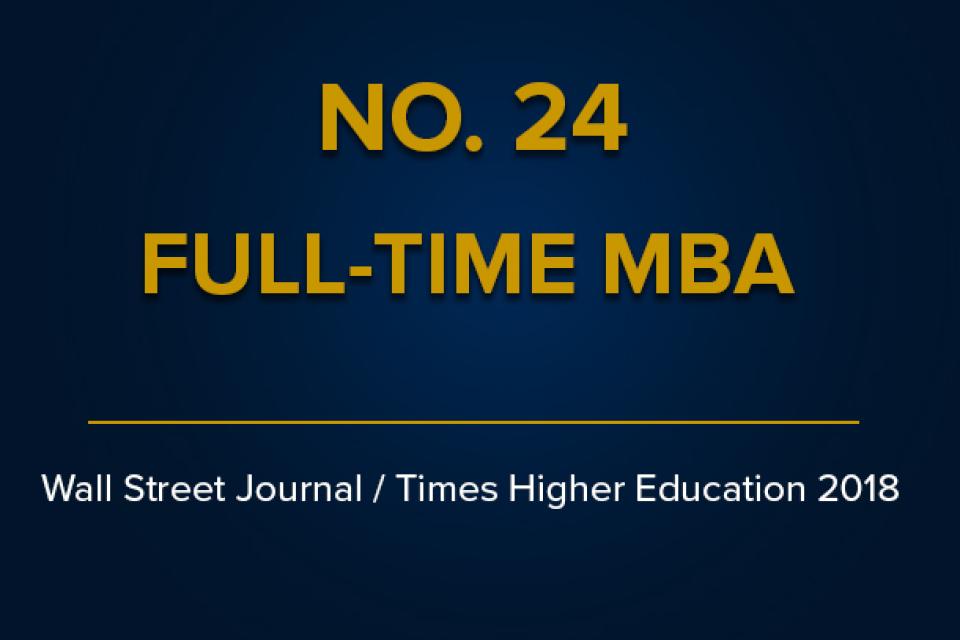UC Davis Full-Time MBA Debuts in Top 25 of New Wall Street Journal/THE Ranking

(Davis, Calif.) — The UC Davis Full-Time MBA is ranked No. 24 in the first Wall Street Journal/Times Higher Education survey of the top global two-year MBA programs released today.
The Wall Street Journal/Times Higher Education results follow several recent MBA rankings that taken together reflect the UC Davis Graduate School of Management’s significant upward momentum among the top business schools.
- In November, Bloomberg Businessweek ranked the UC Davis Full-Time MBA program in the top 40 in the U.S., up 20 places. And, the UC Davis MBA program ranked No. 47 globally. The UC Davis MBA also is ranked No. 9 in Bloomberg Businessweek’s “Learning” category, which reflects the high-quality curriculum and teaching environment.
- In October, The Economist’s 2018 Which MBA? ranked the Full-Time MBA at No. 54 globally, a jump of nearly 30 spots from last year. The Economist ranked the UC Davis MBA faculty quality at No. 8 in the world.
- Among the top 50 ranked MBA programs in Poets & Quants’ November 2018 list, only one experienced a year-over-year, double-digit change: the UC Davis Graduate School of Management, which jumped 11 places to rank No. 49.
“Over the past two months, our Full-Time MBA program has been recognized among the best in the nation and the world by the Wall Street Journal, Bloomberg Businessweek, Poets & Quants and The Economist. These prominent accolades are reflective of the quality of our student experience, alumni success and our collaborative community spirit,” said Dean H. Rao Unnava.
“Times Higher Education has worked in partnership with The Wall Street Journal to gather a unique set of performance data from business schools across the world — based on metrics pioneered in the WSJ/THE U.S. College Rankings,” according to the description of the new business school program rankings.
Methodology
The Wall Street Journal/Times Higher Education (WSJ/THE) received more than 23,300 alumni responses to its survey. Some 134 business schools participated, of which 114 schools were eligible for inclusion in the ranking and comparison of two-year MBAs, one-year MBAs, master’s in finance and master’s in management.
The market for two-year MBAs is dominated by the U.S.; of the 54 institutions offering two-year programs that took part in the analysis, 44 are in the U.S.
One of the key parts of the data collection was the alumni survey, which was taken by more than 23,000 students from three different cohorts: those who finished their studies in 2012, those who finished in 2013 and those who finished in 2015. Responses to 10 questions were used in the final metrics.
The ranking is based on 20 factors in five main pillars encompassing institutional resources, student engagement, teaching environment and student outcomes.
“Analysis of the score differences … suggests that the strength of the top schools centers on their greater resources, their international focus, the salary boost they offer and the strength of their alumni networks,” according to WSJ/THE’s description.
More Information
- Wall Street Journal/Times Higher Education’s rankings and data analysis
- Methodology
- Learn more about all UC Davis MBA rankings
Media Contact
- Tim Akin, Graduate School of Management, (530) 752-7362, tmakin@ucdavis.edu